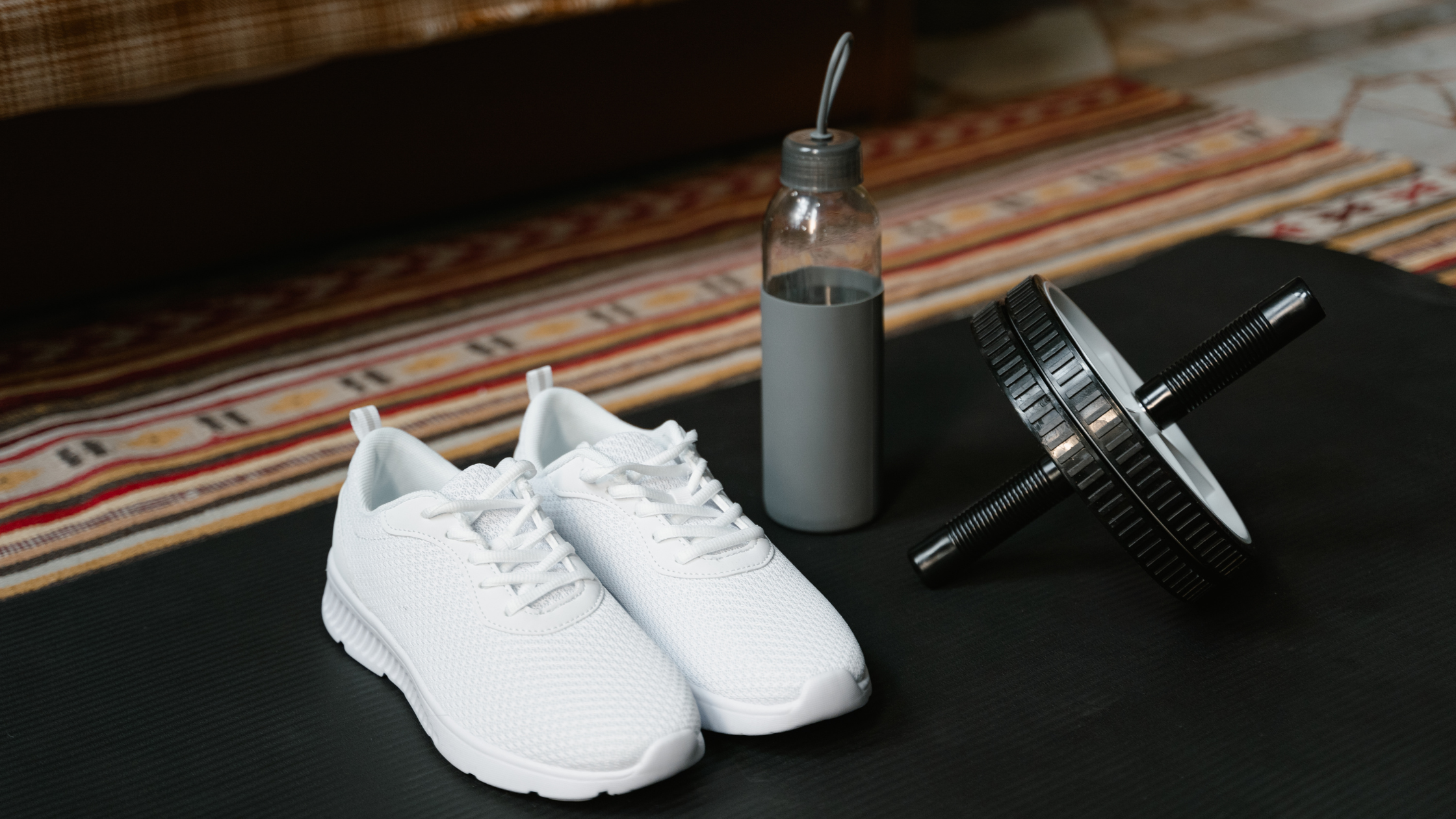Is It Sleep Sabotage? 15 Ways You Might Be Killing Your Sleep Schedule
Written by TYE Medical on Feb 11th 2025
Sleep disturbances have become a hidden health epidemic as countless struggle to get the sleep they need nightly. But the battle might have more to do with what is happening while you’re awake. It’s possible that you’re sabotaging your sleep schedule with your daytime habits. Recognizing and adjusting these habits can directly improve your nightly rest. This is because what you do in the hours leading up to bedtime can have a dramatic effect on sleep quality. Consider this list of ways you could be working against getting the sleep you need.
1. Manage Light Exposure (Daylight and Blue Light)

Sunlight signals your brain that it’s time to be awake, and as it fades your body knows it’s time to prepare for sleep. Light plays a crucial role in your body’s circadian rhythm or wake-sleep cycle. Understanding this can help you use lighting to your advantage, helping you get better sleep. If possible, try to get 20-30 minutes of sunlight in the morning and avoid blue light and bright lights for two hours before your bedtime.
Worried about blue light affecting your sleep? You can relax. Daytime blue light exposure doesn’t affect your nightly rest, but getting too much blue light in the evening can. This is because blue light delays the onset of melatonin which is your body’s natural sleep aid. So simply limit it in the hours leading to bedtime.
2. Monitor Daytime Naps
Avoid naps that are long enough for you to fall into a deep sleep. Not only are these more difficult to wake up from but they can also make it harder to fall asleep later. Instead, take short naps or “power naps” of about 15 to 20 minutes and don’t nap after 3 p.m. Making these changes can help keep your sleep schedule on track.
3. Watch Your Diet

Researchers have found that the quality of your diet can affect your sleep schedule. Diets high in added sugars and saturated fats and low in fiber decrease sleep quality. Participants experienced better sleep quality when they followed diets that were low in saturated fats and high in fiber, produce, and anti-inflammatory nutrients.
And for even more sleep success, give yourself two hours of digestion before bed to keep heartburn at bay and ensure fewer sleep disturbances.
4. Adopt Morning and Nightly Routines
Your routine upon waking and before bed also sends signals to your brain about wakefulness and sleep. For example, if you make your bed every morning when you get up, simply doing that action becomes a trigger, telling your body it’s time to start the day. Such activities as bed making and showering can also kickstart your day and put you in a productive mood.
Keep in mind that this also means that if you slide into your bed for a nap during the day, you could confuse your body. Your brain receives the message that it’s time for sleep.
Perhaps even more importantly, make an effort to adopt a bedtime routine. These are examples of activities that signal your brain that it’s time to slow down:
- Diffusing essential oils
- Dimming lights
- Playing calming music
- Turning off electronics and devices
- Moving to a cozier space
- Drinking a warm beverage
- Changing into pajamas
- Praying or meditating
5. Brain Dump Before Bed

Research backs the idea that writing down your task list and other thoughts before bed can improve your sleep quality. When you lie in bed incessantly turning your thoughts over, it stimulates your brain and counteracts sleep signals. This can keep your system engaged and your body awake. But if you write these thoughts down, you know they are captured for the next day, and it can help you get the closure you need to drift into a restful state.
6. Keep a Regular Sleep Schedule
Irregular sleep schedules can dramatically impact your sleep quality. When you go to bed later and wake up later on the weekends, you’re decreasing the quality of your sleep for the rest of the week. But you can preserve your sleep schedule when you go to bed and wake up at about the same time daily, even on weekends or days off.
7. Adjust Your Exercise Schedule

Avoid exercise after 7 p.m. to keep the activity from disrupting your body clock. Instead, aim to exercise at 7 a.m. or between 1 and 4 p.m. Not only will this keep you from sabotaging your sleep, but it will also give you the energy boost you need in the morning and late afternoon. Adjusting your schedule is another way to ensure quality rest.
8. Avoid Mental Stimulation
It probably sounds like a great idea to curl up with a book or wind down with a TV show before bed. And in some cases, this isn’t problematic. But if you engage in an activity or interact with content that is mentally or emotionally stimulating, you can expect your sleep to suffer.
It doesn’t matter how tired your body is when your mind is stimulated. Your energized mind can overpower your body and keep you from sleeping even when exhaustion sets in. And if you do fall asleep, you’re more likely to be restless and wake in the night. You might even have vivid or troubling dreams.
Instead of engaging in mental or emotional activities try these alternatives:
- Take a warm bath
- Listen to calming music
- Do gentle yoga
- Pray or meditate
- Perform a self-massage
If you enjoy reading before bed, be sure to choose material that isn’t too emotionally or mentally intense.
9. Consider Medication Side Effects

Americans are increasingly taking medications that include insomnia as a side effect. And many people take more than one medication, which makes them more likely to experience medication-induced insomnia.
If you think your medication is disturbing your sleep, talk with your doctor. An alternative medication may be appropriate.
10. Avoid Dehydration
If you stay hydrated during the day, it can help you maintain fluid levels through the night. You’re more likely to wake in the night if you’re not properly hydrated before bed. If you’re uncertain about your daily intake, you can drink 8 ounces of water about an hour before bed, which gives plenty of time to use the bathroom.
11. Try Vitamins

Studies have shown that vitamin B6 and vitamin D can help improve sleep quality. A lack of these vitamins can result in lower sleep scores and more tiredness when you wake.
Vitamin B6 is best taken separately for sleep rather than as a B complex supplement. The combination form must mitigate the effects, which is why you’re better off taking it as an individual supplement.
12. Use Lukewarm Water
Before bed, it’s best to use lukewarm water and avoid the extremes of hot or cold. Hot showers raise your body temperature enough to disrupt sleep. Your body temperature must drop to a certain degree for you to have restful sleep. If it’s temporarily elevated by a hot shower, it can be more difficult for you to drift off and stay asleep.
But don’t think that cold showers before bed are the answer. You save these for the morning, because the frigid temperature overstimulates your body, which also makes sleep a challenge.
13. Pass on an Evening Drink

You might fall asleep more quickly after drinking alcohol but you’re also more likely to wake up in the night and have vivid, disruptive dreams. Even though alcohol is a depressant and can make you sleepy, too much can throw off your circadian rhythm (or body clock) and pose sleep challenges, such as interfering with the most important sleep stage, rapid eye movement (REM) sleep.
After drinking, you’re more likely to wake up exhausted as your sleep has come in fitful waves, depriving you of effective rest.
14. Check Your Thermostat
Before going to bed, check your thermostat. While your body temperature needs to drop to fall asleep, it then must rise to fall into a deep sleep. So even if your bedroom temperature is comfortable during the day, it can be uncomfortable in the middle of the night while you’re in a deep sleep. You need your bedroom temperature to accommodate for your rising body temperature at night. Otherwise, you will have restless sleep and frequently awaken.
Make an effort to cool your sleeping space before bed. Many sources report that the optimal temperature for sleeping is 60-67 degrees Fahrenheit.
15. Time Your Caffeine Right

It probably goes without saying, but take notice of when you’re drinking caffeine, especially coffee. It’s best to avoid caffeine during mid-afternoon through the evening. For some, you may want to avoid it altogether in the afternoon. The general rule of thumb is avoid caffeine six to eight hours before your bedtime.
If you enjoy a warm drink at night, (which is great for sleep), opt for beverages like herbal or decaffeinated tea or warm, spiced milk, or decaffeinated coffee.
For Better Sleep, Consider Your Daytime Habits
How are you sabotaging your sleep? Consider making adjustments to your routines. Be mindful of blue light exposure during the hours before bed time and the length and timing of your naps. Be sure not to exercise too late in the evening and drink plenty of hydrating fluids during the day.
If you make the necessary modifications but are still struggling with your sleep schedule and quality of sleep, talk with your doctor about other ways to get the rest you need.


